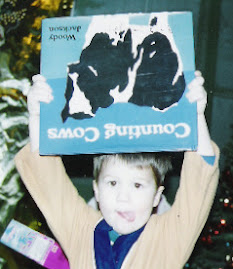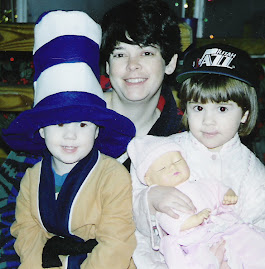If you haven't watched this yet, please do...Truth speaks louder than anything else...
A Child is Waiting, Take care...be aware, Nancy Lee
I've looked at Child Abuse from all sides now... but still somehow I'm wondering ...always wondering.
Posted by
Child Person
at
1:57 PM
0
comments
![]()
“Children begin by loving their parents; as they grow older they judge them; sometimes they forgive them.” Oscar Wilde (via Cathy Hewitt @EasyParenting on Twitter)Can't help wondering...what you're wondering about?
 I’m wondering why it is that we fail to see the obvious sometimes. For instance when I encountered the Wilde quote this time, my first thought was not as before, a smug, “ Oh how true!” No, this time I thought, “How could it be otherwise?” For the truth is that long before children begin to judge their parents, they learn the process of judging from the parents.
I’m wondering why it is that we fail to see the obvious sometimes. For instance when I encountered the Wilde quote this time, my first thought was not as before, a smug, “ Oh how true!” No, this time I thought, “How could it be otherwise?” For the truth is that long before children begin to judge their parents, they learn the process of judging from the parents.
Posted by
Child Person
at
3:01 PM
0
comments
![]()
Can't help wondering...what you're wondering about? I'm wondering why I let this blog go so long unattended...Time for a change! A Child is Waiting, Take care...be aware, Nancy Lee
Posted by
Child Person
at
12:39 PM
0
comments
![]()
One in four children exposed to some form of family violence, study finds
Can't help wondering...what you're wondering about? A Child is Waiting,Take care...be aware,Nancy Lee
Posted by
Child Person
at
2:04 PM
2
comments
![]()
Babies and toddlers should learn from play, not screens
Can't help wondering...what you're wondering about? A Child is Waiting,Take care...be aware,Nancy Lee
Posted by
Child Person
at
11:37 AM
0
comments
![]()
Alison Gopnik: What do babies think? | Video on TED.com
Can't help wondering...what you're wondering about? A Child is Waiting,Take care...be aware,Nancy Lee
Posted by
Child Person
at
10:53 AM
0
comments
![]()

The child is not honored if we always expect him to grow up, because a child is not grown up.~Thomas Moore~
Can't help wondering...what you're wondering about?
Recognizing child abuse is becoming easier for the average person to identify as ever increasing numbers of organizations and individuals dedicate their efforts to raising awareness about what commissions and omissions constitute child abuse and neglect. However, there is more to providing children with positive, nurturing environments than simply eliminating abuse and neglect from their lives. Although, admittedly, protecting children by eliminating abuse and neglect from the lives of children remains an important priority for many of us. Recently a dear friend shared with me her beautiful thoughts on what children need and deserve as basic rights. Here, with her permission, I share them with you...
Children
First and foremost, a child must know that he is safe and secure. This
sounds so simple, but it is anything but simple. In order for a child to be
free to explore his territory and/or abilities, he must know that his
guardians are exactly that, guarding him. Clear, precise, and consistent
boundaries give a child a sense of security. He must know what is and is not
allowed. Knowing he has someone to firmly guide and protect him relieves him
of fear and a premature sense that he should know those kinds of things
himself. His mental age must always be considered and understood. Words
used should be relative to his level of understanding. Over-explaining
causes confusion and frustration. Simple, short, and clear communication is
quickly processed by a young child. More thorough explanations will come
when the child is able to communicate on that same level. He will question
why he should or shouldn't do something.
A part of preparing the child for living in her future world is to give her
a realistic understanding of her position in the family and in society.
Allowing her to be the center of attention for too much time, or giving her
the sense that everything centers on her and what she wants to do creates a
false sense of self-importance and empowerment. The child needs to know that
she is an integral part of the family and that there are other members who
have equal importance. It is unfair to the child to allow her to think that
everyone will focus on her and that others do not have valuable status. It
is important for parents to take care of their own needs, do their work, and
go on with their own lives so that they are setting an example to the child
as to how to live her life in the future. Not only that, she learns to
respect the lives of others. There must be a balance to all of this, of
course. The child should not be ignored and left to fend for herself. On the
other hand, it is important for her to know how to entertain herself and
allow the other members of the family to do the same.
Parents must set some boundaries for themselves, also. It's important to
know that children will take all of the attention that anyone will give to
them. It is physically impossible to give the child all of the attention
they want and still live a normal life. Not only that, as I have stated
above, it is unfair to the child. When the parents go on with their lives
much as they did before they had a child, while giving the child an
appropriate amount of attention, meeting their needs and treating them as
valuable little people, the child assumes a realistic position within the
family, neither as the center nor head of it. The child learns the function
of all the roles of each family member. Thus, they become a functional
family rather than the dysfunctional family that has gotten so much
attention in the last few years.
Children need to see that there is a special relationship between the mother
and father that is different from that which involves them. This can be done
by setting clear boundaries around that relationship and not including the
child in a way that might give the child the impression that they are a part
of that particular interaction. Sometimes it must be husband and wife, only.
Making this differentiation is extremely important for the child's future
relationships. This should be done in a natural, subtle manner without
making the child feel unimportant or rejected. Remember that the child is
recording what he sees and experiences for future use. He learns what he
sees far more clearly and permanently than what he is told. Words mean much
less than actions.
Discipline, coming from the word disciple, further explains this concept.
Children are disciples of their parents. It is as simple as that. The
parents teach the children how to act by what they themselves do. A mother
who allows the father to abuse her is telling the child that abuse is
acceptable and that she, too, can be abused. The father is teaching the
child that it is acceptable to treat a woman in this manner. Telling the
child otherwise will have little effect. On a more positive note, parents
treating each other with kindness and respect are teaching the child to do
the same. To discipline a child is to show her how to behave rather than
tell her. Correcting a child's behavior is showing her how to do what is
appropriate, not focusing on the wrong doing. Telling a child to not do
something leaves her focused on that same action without knowing what the
appropriate action is. Smacking or spanking a child for something she has
done is more confusing to the child than any other action. Not only has she
not been shown the appropriate action to be done, the person she loves and
trusts with her life has just told her that she is not safe with that
person. The child is already frustrated and confused, now she is in fear of
her protector. Nothing is solved by striking a child in any manner.
Threatening to strike a child is bullying, sending the message that the
parent is bigger than the child and therefore able to hurt her. Added to the
hurt the child realizes that she is no longer safe and secure with those she
has trusted, their love can quickly be replaced with inflicted pain.
Using violence, spanking a child, is a sign that the parent has chosen not
to try to deal with the situation, but to take the easy way out for herself.
However, the parent has lost in the long run. The relationship that has been
so diligently and lovingly developed has been spoiled. Many people have
been taught that the Bible states that a parent should not "spare the rod"
and they think this literally means an actual rod. What has not been
explained is that the word rod is meant as a "standard", a discipline, a way
of behaving. Yes, parents must provide solid standards, principals and
values by which the child can adhere, boundaries and examples. But, at no
time is anyone directed to strike a child. Should the child need a firm
hand, that hand should be used to help the child change his behavior, not
strike him. A child should always trust that when a hand of his parent
reaches towards him, it is coming to give him love and assistance. Fear
should never come between the parent and child. Firmly removing a child from
the offending behavior, removing the object from his possession, lovingly
restraining him from the action, allows him to understand that the parent is
in control and can be trusted to stop him if and when he goes beyond the set
boundaries. It is the action that the child responds to, not just the words.
He is depending on his parents to keep him within the standards they have
set for him.
Allowing the child too much time to correct his actions is teaching him that
he can delay responding to the parent's request or command. He will take as
long as the parent allows. Correcting once and then enforcing it with action
- helping to make the right move - teaches the child that one correction is
enough. Otherwise, the child is put in an unfair position of assuming that
he has authority that he does not yet have. The right to discuss the
directions given by the parent will come well after the child can talk and
reason in a rational way. This happens in growth increments throughout his
childhood. Expecting him to have reasoning abilities before his brain has
reached that stage is upsetting for him and can trigger what seems to be a
temper tantrum but is actually his way of expressing his frustration. The
child may be saying "I have lost control of my body and actions. Please help
me". This is aggravated further by giving him a swat or spanking. Holding
the child and talking to him in a calm assertive manner, reassures him that
he is safe and will be kept within the proper boundaries of behavior by his
guardian.
It is important for the adult to remain in the role of parent and never
think that the small child is directing his frustration directly at the
adult. In other words, don't take it personally. Doing so will misdirect the
parent's thinking onto herself instead of the needs of the child. Separating
herself from the child's behavior allows her to remain calm and help the
child through his current drama. Keeping in mind that the child will
eventually emulate the behavior of both parents helps to keep the parents'
actions appropriate.
For a child to grow up with a healthy perspective of what it is to be a
functional adult, it is necessary that he have a solid relationship with
both parents, especially if they are both in the home. (When either parent
is raising the child alone, a whole different scenario evolves.) If one
parent dominates, the child will absorb that by osmosis! He will grow up
with an unbalanced respect for both parents, thus the same attitude toward
his spouse or mate. If the father chooses to allow the mother to do the
majority of the parenting, the child will assume the woman is the stronger
of the two. If the mother leaves the so-called disciplinary actions to the
father, then the child will fear the father and rule the mother. For him to
experience a loving relationship with both parents and have equal respect
for both roles, he needs to know that he can depend on both of them to keep
him safe, provide for his needs, and prevent him from going beyond the
boundaries they have set for him. This is not to say that they must spend
equal time with the child or that their responsibilities are the same. Every
family will have different situations.
A family in which both parents have jobs outside the home will have
different duties than a family who has a stay-at-home mother or father. Just
as the parent who stays at home is not expected to go out and work a
full-time job, the parent who goes out to work is not expected to spend
equal time with the child as the parent who stays at home. In order to
provide a functional relationship for the child to emulate, both adults must
recognize that their jobs are of equal importance and show respect for each
other. The amount of time that each parent spends with the child should be
agreed upon by both parents without either having unspoken expectations. The
child needs to feel a balance in his relationship with each parent and to
know that both parents will be consistent in providing the security he needs
within the same set of boundaries. If one parent only plays with the child
and assumes no other responsibilities while the other takes on all the
responsibilities, rarely having time to play, that does not provide balance.
A child needs to know that he can turn to either parent at any time in his
life and receive similar support and guidance....[Author: SS 2009]
A Child is Waiting,
Take care...be aware,
Nancy Lee
Posted by
Child Person
at
8:58 AM
2
comments
![]()
Labels: child communication, child nurturance, child safety, child security
Congress Pressed to Act to Curb Child-Abuse Deaths - ABC News
Can't help wondering...what you're wondering about?
A Child is Waiting,
Take care...be aware,
Nancy Lee
Posted by
Child Person
at
2:29 PM
0
comments
![]()
Congress Pressed to Act to Curb Child-Abuse Deaths - ABC News
Can't help wondering...what you're wondering about?
A Child is Waiting,
Take care...be aware,
Nancy Lee
Posted by
Child Person
at
2:28 PM
0
comments
![]()






